
Merry Crisis (Demo)
After a break-up turns your world inside out, you return home for Christmas hoping the change in scenery will give you space to mend a broken heart.
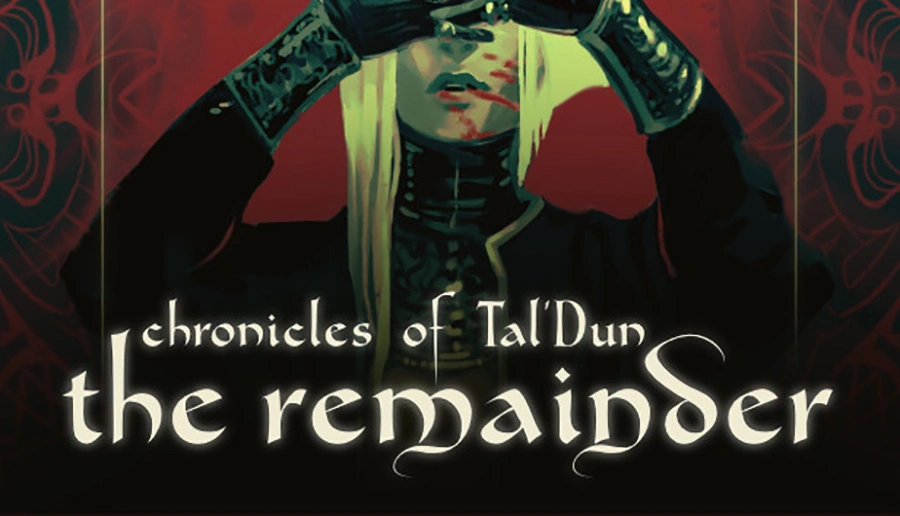
What would you do if you’ve lost all your memories and an enigmatic stranger urging you to trust them—or risk losing everything? Nim and Ze’s latest Chronicles of Taldun visual novel takes this compelling premise and adds a large sprinkle of magic. With its innovative gameplay and emotionally charged narrative, the game offers an experience that’s as layered as it is gripping. We spoke with the creators to uncover their inspirations, creative process, and what makes this story truly unforgettable.

Nim: “I’m Nim. I was a freelance artist and now I draw for our games. I write, program, do a little bit of music, those kinds of things.”
Ze: “I’m Ze, I used to be an artist in my previous life. In video games and some films doing VFX, 3D models, illustrations—that kind of thing. I kind of retired in 2016 when I met Nim, and then together we got the idea of making some kind of story project of our own. We thought, “hey, visual novels, why not?” We like books, we like reading. Writing is a very low-budget way of creating scenery. You don’t need, like, a set.”
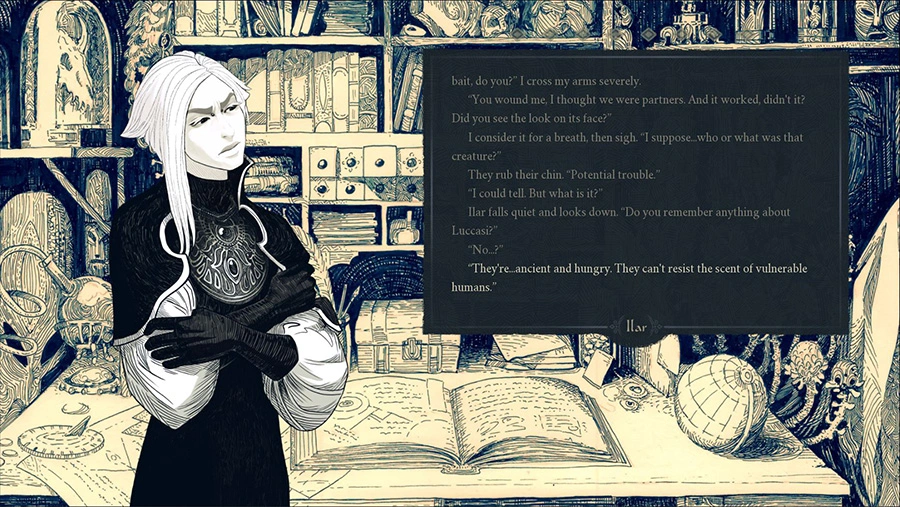

Developers: “The game is about solving a mystery. You wake up in a place you don’t recognize with no memory of how you got there. Someone shakes you awake, saying, ‘We’re in danger, and we need to work together to save ourselves.’ Then they tell you that you don’t remember anything because of a magic ritual that has gone off the rails. You’re suffering from the aftermath. While trying to survive, you uncover fragments of your past and discover your relationship with the guide.”
There are two main plots: self-discovery and survival. The character is torn between finding out who they are and addressing the immediate danger. Choices play a huge role, and they’re designed to reveal some truths while obscuring others. You’ll need multiple playthroughs to piece everything together.
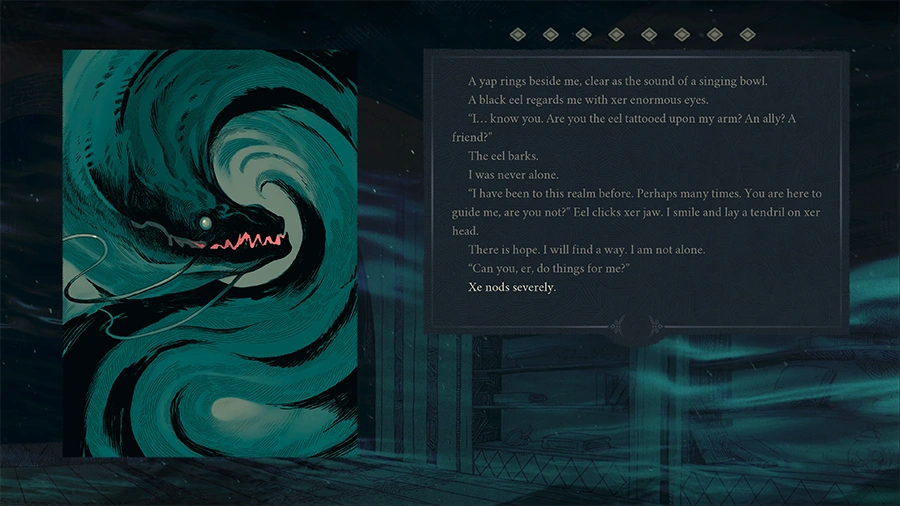

Developers: I jokingly called this kind of game a ‘roguelike visual novel’ when we were working on it. Just because, like roguelike games, you can’t get everything in one go. You can only unlock certain things in one playthrough, then you die, or you somehow reset, then you start again and try something different. That’s sort of what we were going for.
You actually need to die to find some clues. How you die in the game is a clue in itself. It’s about asking, ‘Why did I die here? Why did I get killed in this way?’ and learning from it. It’s not about right or wrong choices but about uncovering different flavors of the narrative.


Developers: The main relationship is between two magi, one of whom has lost their memory. Their dynamic is complicated by their past—they were partners in magic, with some physical intimacy. One is a workaholic focused on their ambition and life’s work, while the other is more in touch with their emotions and grounded in everyday life.
The characters draw from our experiences. For instance, one’s workaholic nature comes from my own tendencies. The story also plays with themes of trust, memory, and how much of ourselves we share with others.
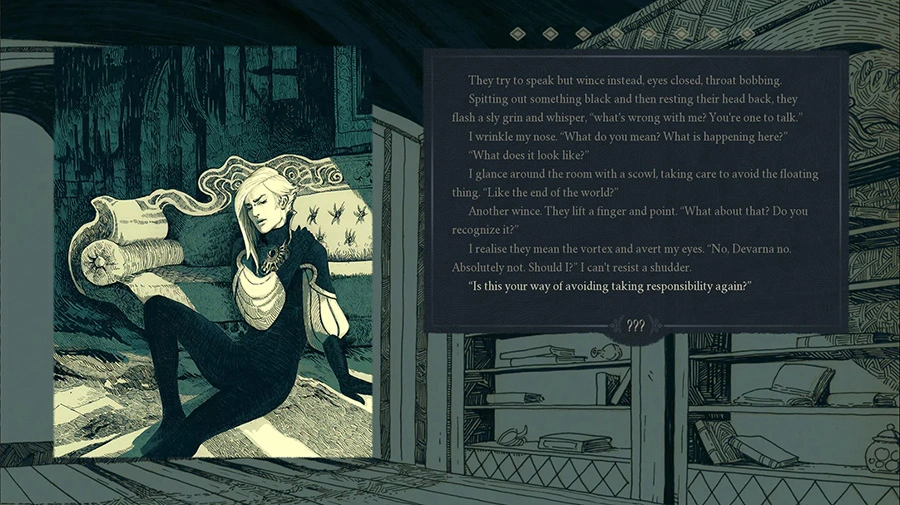

Developers: One thing you said, it’s like in this world, seas are very important, part of the culture. So a lot of exclamations or metaphors they use are related to water and sea. We try to, as much as possible, not tell people what the world is like, but hint at what the world is like through the way the people act.
Yes, we believe in showing rather than telling. Players experience the world through the characters—how they speak, act, and interact with their surroundings.
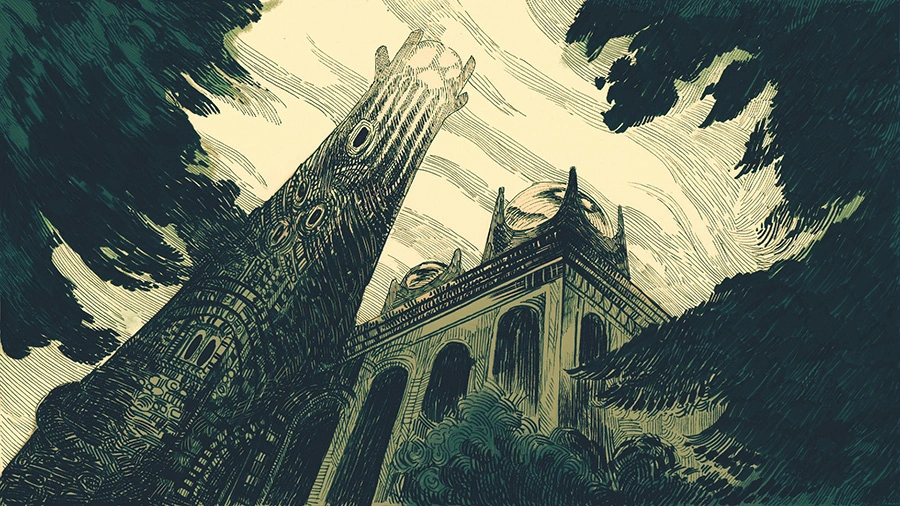

Developers: Definitely. The game can get heavy, so we added humor and lighthearted moments to balance things out. There’s a scene where you can rename a terrifying abyssal entity ‘Mashed Potato.’ If you agree to that, for the rest of the game, everyone refers to it as Mashed Potato. It’s those little touches that make the darkness more bearable.
It’s about pacing. You can’t keep things grim all the time; players need a breather. Humor acts as a coping mechanism for the characters and the audience.
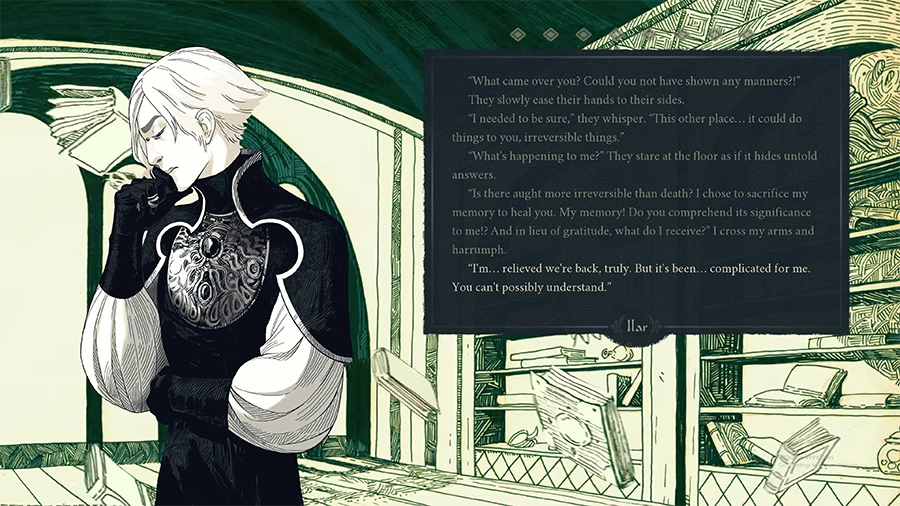

Developers: Well, at the beginning I was actually drawing everything with ink on paper. For example, the desk scene is traditionally drawn. With time, I tweaked some images and started doing them digitally because my hand was suffering from so much traditional drawing. Most of the backgrounds are traditional.
For music, we improvised a lot. I’d imagine the shape of the music in my head and try different sounds until they matched the scene’s mood. Nim played most of the piano pieces, and together we crafted a soundtrack that immerses players in the game’s atmosphere.
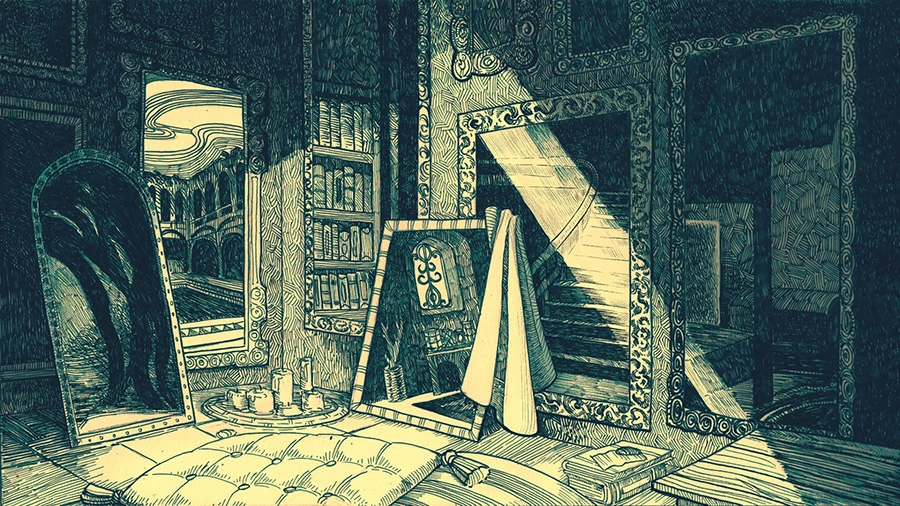

Developers: We’re toying with the idea of a world that’s literally alive, with its own consciousness. It’s a concept we’ve layered into the current game’s world-building and hope to explore further in future projects.
For now, we’re just excited for players to dive into this story, uncover its secrets, and hopefully connect with its characters.

To top off our journey into Chronicles of Taldun, the developers have shared an exclusive behind-the-scenes portrait of Ilar, the enigmatic mage who plays a central role in the story.
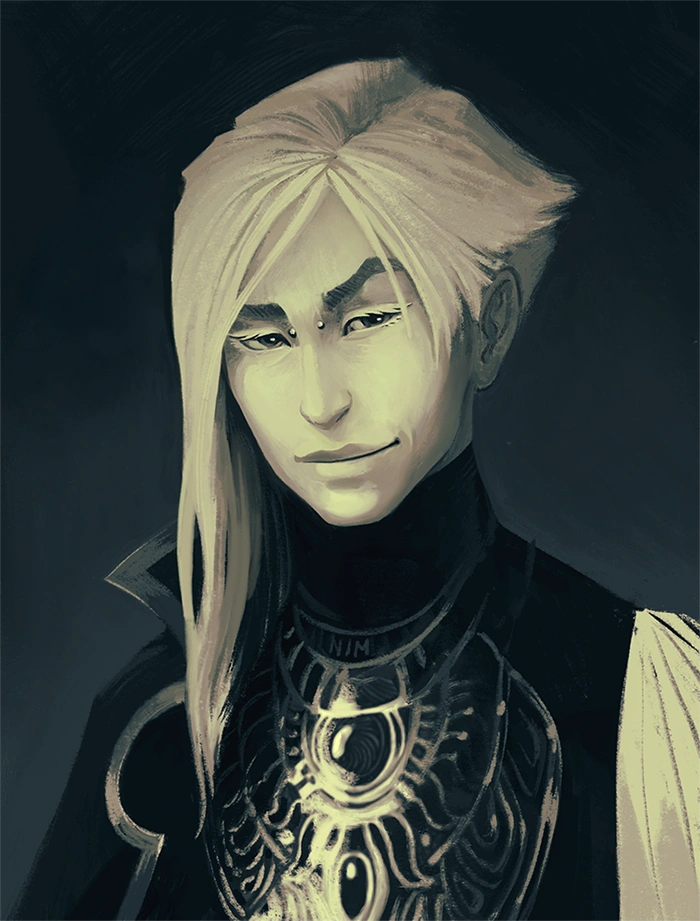
If you’re interested in a story full of mystery, magic, and emotional twists that keep you on your toes, Chronicles of Taldun: The Remainder is the perfect game to dive into. But hey, don’t just take our word for it—you can try out the demo here on Steam, or even buy the full game for the complete expirience. Or – if you’re too lazy to download it, you can directly play it on our website here.
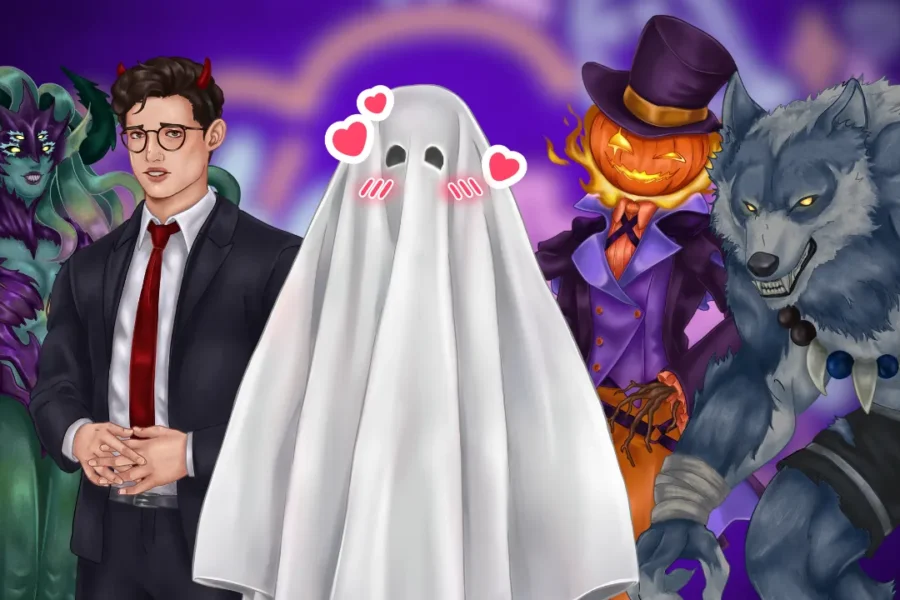
The Boo-chelor is a wildly creative Halloween-inspired dating-show visual novel where a lonely ghost MC becomes the star of a paranormal reality TV show and...
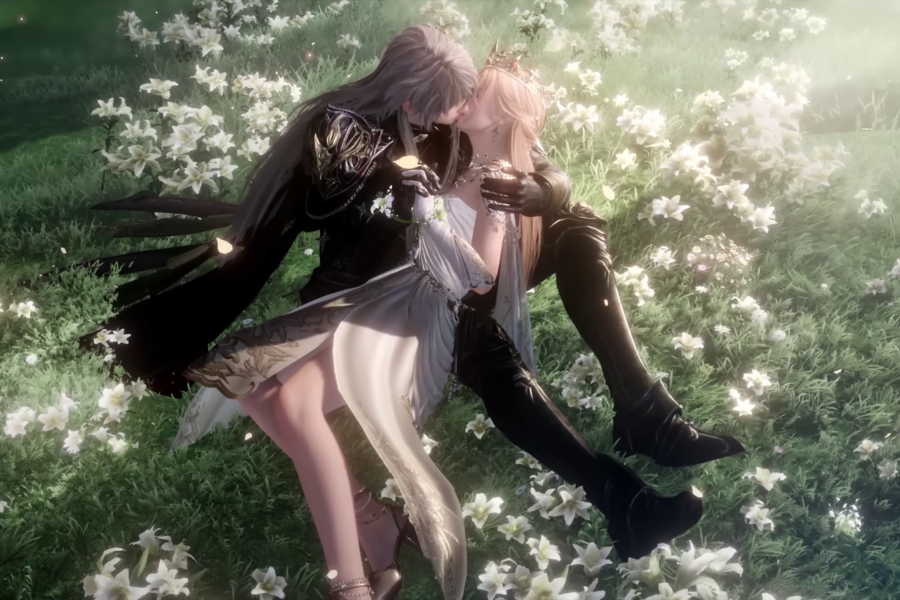
Love and Deepspace, developed by the company often referred to as Papergames or Infold, has come under immense scrutiny due to ongoing legal proceedings. Fans,...
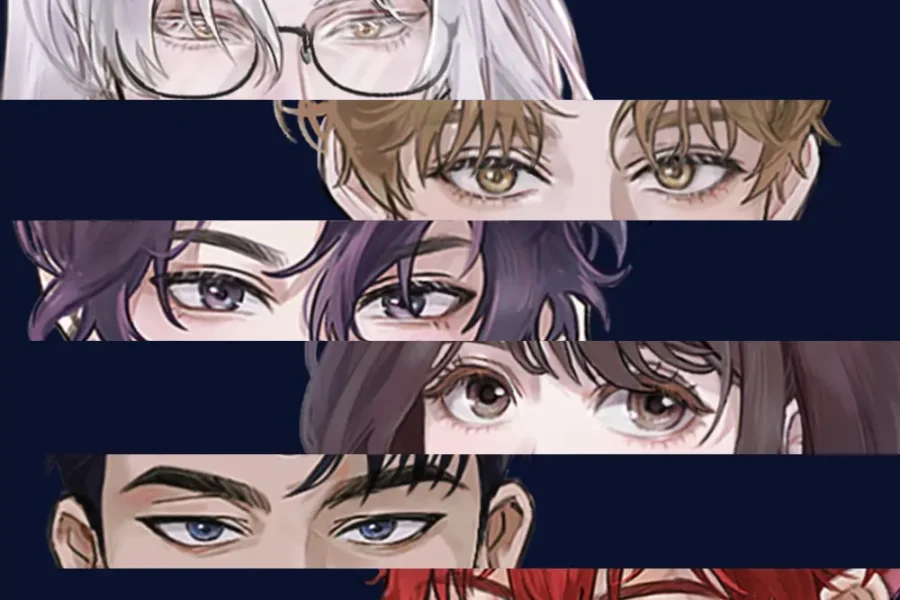
In the world of visual novels and romance sims, few projects have stirred as much early excitement as Moonlight Dialogue, a chat-based game blending emotional...